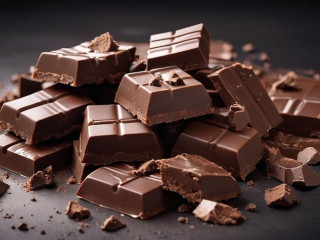5 Myths (or Facts) ?
The perfect remedy for the afternoon slump, a broken heart, or just as a snack. There is hardly anyone who does not like the taste of chocolate.
Chocolate has a bad reputation though.
It supposedly causes acne and headaches. However, chocolate is also said to be an aphrodisiac…so, is there any truth to these myths?
Myth 1: Chocolate causes acne.
Eating too much fat or sugars can lead to your skin producing more oil, which in turn leads to the formation of dimples. Chocolate is high in fat and can cause skin impurities, depending on what skin type you have. If you tend to have oily skin, you should look at your diet and reduce the amount of fat in it.
Myth 2: Chocolate increases your sex drive.
A lot of people believe that chocolate is an aphrodisiac, meaning that it increases your sex drive, and although this belief persists, it is actually wrong. Several studies over the years have shown that sexual desire does not increase with the consumption of chocolate. The chemical responsible for your sex drive, serotonin, is released by chocolate, but the amounts are so small as to have no effect.
Myth 3: Dark chocolet is healthier than milk chocolate.
This one does actually have truth in it. This is because dark chocolate contains more antioxidants that can have a positive effect on the body than milk chocolate. Some people are not very keen on the taste of dark chocolate at first, so start with a 50% dark chocolate and work up to the healthier 75% over a few weeks. As a note, the positive effect of dark chocolate is cancelled out when eaten with milk.

Myth 4: Chocolate is good for your heart.
Eating a small piece of dark chocolate every day is actually good for you. It can reduce the risk of cardiovascular disease as it reduces blood pressure, this is according to results in a study from the British Medical Journals Heart magazine (Volume 101, issue 16). It explains that flavonoids contained in the cocoa plant have a positive effect on blood vessel elasticity and blood pressure.
Myth 5: Chocolate triggers headaches.
In a study of sixty-three women, recorded by the American National Institute of Health, it was found that ‘contrary to the commonly held belief of patients and physicians, chocolate does not appear to play a significant role in triggering headaches.’ This means that science has actually debunked this myth, but if you do suffer from regular headaches you should keep a food diary so that you can trace if you have a trigger in your diet that is causing them.
Conclusion:
If you really enjoy dark chocolate, it can have health benefits. As with all foods that contain sugar and fat though, you should consume it in moderation.
